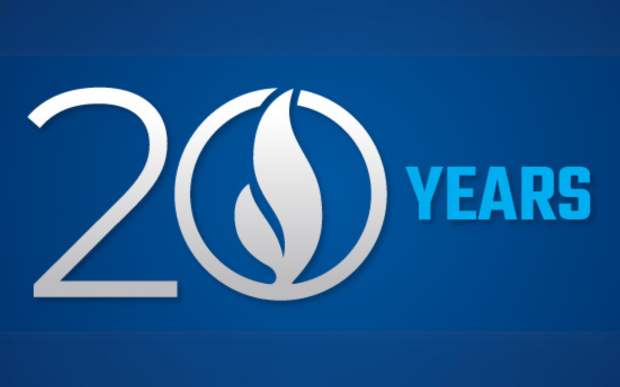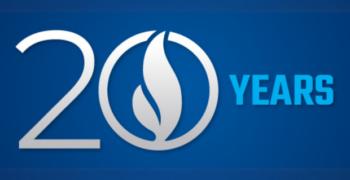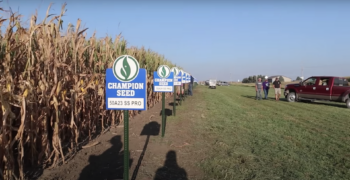Picture yourself at 24 years old. Were you forward-thinking? Naive? Barely getting by? Most 24-year-olds might just be figuring out the intricacies of adult life. But for Seth Hill, 24 was the year he jumped the traditional ship and started independent seed company Champion Seed with his brother-in-law and future co-owner Brett Hodnefield.
The two started working together in the seed industry in 2002, just one year after Seth graduated from Iowa State University with a degree in agricultural business, the same degree Brett earned in 1996.
In 2003, the young entrepreneurs had the opportunity to purchase a warehouse facility in Ellsworth, Iowa, which would serve as the headquarters for their sprout of a seed company.
Small beginnings
“We had four plant employees, four salespeople and two office workers when we started,” remembers Brett. “We often questioned why we were in this business. But we took it day to day and year to year. As long as we could keep paying our bills, we’d stay in business.”
Seth recalls the early years as “lean and mean,” not unlike the young and aggressive spirits of both young men. But unlike most small, independent seed companies, Seth and Brett didn’t have farming to fall back on, despite both being raised in farming communities. They knew success required intense dedication.
“We had to pay attention to every little detail,” says Seth. “To lose even one customer was a huge loss for us.”
There were more than 250 seed companies for farmers in the Champion Seed sales area in 2003. Today, that number has fallen to less than 100. In the face of larger farm sizes, fewer farmers and relentless seed company consolidation, how is Champion Seed not only surviving, but thriving as they celebrate their 20th anniversary?
“We decided swimming was better than sinking,” asserts Brett. “You don’t get into the seed industry, let alone a license to sell seed from every trait provider out there, without support from a lot of people who believe in you.”
With the support of eight employees, including Seth’s wife Willow, and Brett’s wife Keri, the small-but-mighty team kept the company moving forward.
Big victories
The young company struck gold in 2009 with a hybrid that emerged victorious in field trials at Iowa State. The win resulted in more salespeople eager to work for Champion. Now, Champion Seed has access to the best varieties and hybrids available.
Today, those 10 original employees, including Willow and Keri, are still with Champion Seed, which has grown to a team of 40. They’ve also brought on 170 dealers in multiple states and their planted acreage has increased by 800%.
That victorious spirit is what led to the name “Champion Seed.” Seth and Brett agree they’re in the business of selling hybrids and varieties that are ‘champions in farmers’ fields’.
“When you pick the name Champion, it sounds like you’re picking a winner,” says Seth.
And it’s the quality of seed, over the quantity, that has driven the business forward for two decades.
Relationships first
“Of all the seed companies left today, it’s not necessarily the biggest that are still around, but the best run,” says Brett. “We’re among the top independent seed companies in the country. We’re not corporate-owned. We’re just two owners and you’re talking to them right now.”
When Seth pictures himself at 24, there’s not a lot he would have done differently, as shortcuts don’t work in the seed business. Seth and Brett relied on old-fashioned relationship building 20 years ago and still consider that the core of their business today.
“Everyone tries to find a shortcut these days,” says Seth. “But the whole seed business is very relationship-based. From dealers and district managers to our customers, seed is still very personal.”
So, what do the next 20 years look like for Champion Seed?
Brett and Seth say it’s all about putting more people in more places. With ongoing seed industry consolidation, they see opportunity to find good salespeople who are let go in that process and get Champion Seed into more states.
“A little bit of luck always plays into these things, too,” admits Brett. “But we’ve got great employees who we will always support. We don’t want to leave anybody high and dry today or in 10 or 20 years from now.”



